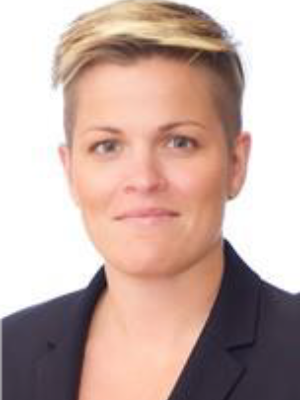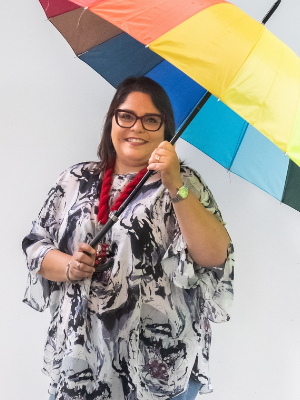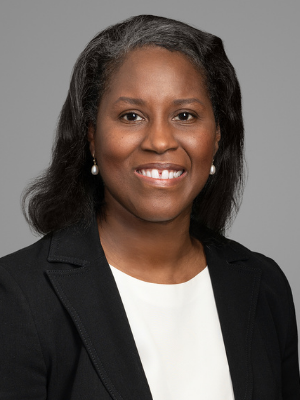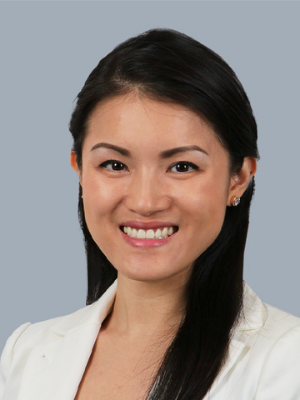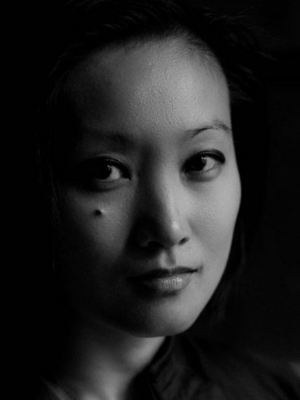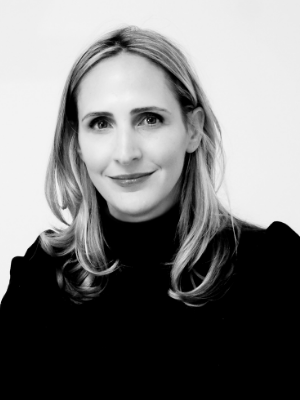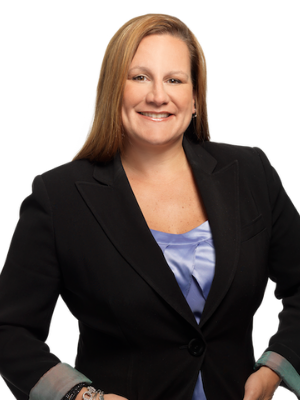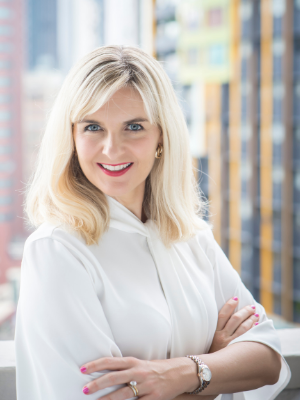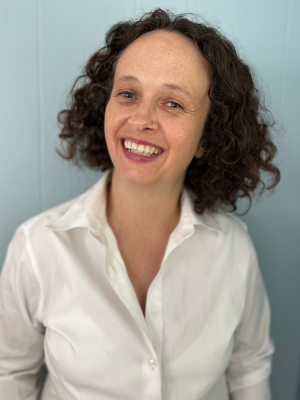 The Glass Hammer was founded fifteen years ago (July, 2007) with the distinct intent of helping professional women – especially within financial services, law, technology, Fortune 500 – understand how to navigate their careers with the ultimate goal of advancing. The mission was to inform (provide expert career advice), empower (by bringing women together with events and networking), and inspire (by profiling women who have blazed the path and broken through the glass ceiling in some form). We sit down with Nicki Gilmour to discuss where things stand now as we celebrate this milestone of the longest running career advice publication for professional women.
The Glass Hammer was founded fifteen years ago (July, 2007) with the distinct intent of helping professional women – especially within financial services, law, technology, Fortune 500 – understand how to navigate their careers with the ultimate goal of advancing. The mission was to inform (provide expert career advice), empower (by bringing women together with events and networking), and inspire (by profiling women who have blazed the path and broken through the glass ceiling in some form). We sit down with Nicki Gilmour to discuss where things stand now as we celebrate this milestone of the longest running career advice publication for professional women.
Q: How have things developed since The Glass Hammer launched?
The world has changed significantly across these past fifteen years. But the pandemic has created the most seismic shift in how people work, how people want to work and how people live. Many people, women in particular, found themselves suddenly dropped into a very different reality as of March 2020 that included swapping the commute and the long office days for long days in front the computer and longer days in some cases homeschooling kids and sanitizing everything.
Perhaps one silver lining of the pandemic, if you can call it that when there was such sorrow and stress for so many, was the chance for all of us to understand that the future of work could happen more quickly than we realized was possible. We saw how we could switch to Zoom, Teams, Webex, Google Meet and other platforms to conduct conversations and share documents. And guess what? We still managed to do business – despite the constraints and challenges, both for individuals and organizations. ‘The future is now’ comes to mind as it is no longer a theory to work remotely as it pertains to equal or increased productivity.
Beyond the practical logistics of work, people also started to really look more deeply at their personal values. When your back is against the wall, it’s time to ask: what really matters here?
Q: What has changed for professional women in the past 15 years?
So much and yet nothing has changed for professional women.
I think the greatest thing that has changed is that people want to see their leaders show more empathy than before and that success and professionalism, as definitions, have become wider and more diverse.
Ambition remains a very personal trait that is present, to a lesser or greater degree in all people as they are individuals with personalities, specific belief and value sets and varying needs and experiences. Many ambitious women still envision a linear path to the top. But I believe that having been through the pandemic and the shift in many realities, people also understand more than ever that the definition of insanity is doing the same thing over and over again and expecting a different result. I can’t speak for any other human except myself, but I do see, observationally, as an executive coach and Organizational Development consultant, that generally people are tired of accepting the legacy status quo as the only way forward in terms of what dictates how we work and when we work as well as where we work.
With the ‘Great Resignation,’ some people have literally voted with their feet and walked out of very well-paid jobs including Sheryl Sandberg who left Meta recently. Sheryl, as we know, was the author of Lean In. Well, she’s decided to lean out. I think that says a lot. I believe this was an era of ‘celebritizing’ a handful of women and it continues as VC’s are still backing firms that do close to zero for women on a structural change level and continue to implicitly tell women to just network.
Certainly people, and some companies, have also finally decided to stop tolerating the same biases based on gender, but there is still a lack of transparency around pay equality. Just recently, Google has paid out $118 million in settlement to 15,000 women in a class-action lawsuit about gender pay discrimination. I would hope there comes a day when equality is built through solid processes and good human behaviors not litigation – however, as it seems law suits are still the most effective method, that comes at great cost to the women who bring them.
I definitely see a theme where things, that we didn’t contest in the past, are more explicit and more accessible to contest at least. We are asking companies to walk the talk on equality and meritocracy. That starts and ends with transparency. There still isn’t a consistent pathway to get to the mystery of what you’re being paid and why, depending on who you are from a biology or ethnicity perspective, as pay is not really assigned strictly on merit, experience or even qualifications in most companies.
I have spent the past few years contemplating whether breaking the glass ceiling is a redundant concept for younger professionals in the sense that people don’t want to be on the other side of that glass if the traits it takes to be successful there means assimilating to something that just doesn’t resonate at all. When what’s been holding everything up is the structural walls of rules that clearly don’t favor meritocracy, due to flawed cognitive and social constructs around who gets to lead, is the work that is needed to be centered differently? A new way of looking at this? I am not sure the work is as evolutionary in the linear sense that we all once believed it was.
Q: Say more about how you are approaching the big questions, now.
I think futurism is key now in terms of understanding what can be, as well as what has been, or what is. I think that it’s a time of considering a deeper structural review instead of incremental bricks on the old crumbling foundations. Saying that, there are 41 female CEOs in the Fortune 500 right now, or 8.2 percent, which is a record high. I do not want to dismiss the fact that incremental change is happening, but it isn’t enough in terms of impact for anyone to truly celebrate progress with any sincerity, as if this was a product it would be shelved due to slow adoption in the marketplace. The big question is, are we happy with very gradual, incremental change? And how long will it take for equality to happen? Especially when we take huge hits like the overturning of Roe v. Wade, Title IX and other various cultural backslides that hamper women from an equal existence generally, as well as specifically.
Academically, this is going back to Virginia Schein’s (et al) “Think Manager – Think Male,” which began over 40 years ago. Without knowing the human involved, people in aggregate still vote for the straight male manager as the most leader-like with real traits like productivity, competence and assertiveness. Conversely, they continually mark in the traits survey that women are less competent, productive, and assertive even though there is not a specific woman being assessed, just generally as a cognitive concept of a female manager, which is very disheartening and often the respondents are also women. This remains in play in a very real way in a workplace near you! Never underestimate the power of the cultural wallpaper and what it can do in terms of unchecked internalized misogyny.
Q: Systemically, what cracks are we seeing more clearly than ever, especially now?
It goes back to promises not kept – transparency of pay, transparency of promotional track. The entire system has never been truly re-envisioned to integrate women’s lives or value our spherical lives as a whole. There’s also the blunt fact that organizations still ignore life outside the skyscraper. It has been well-documented that women do the second shift at home and do something like 10 extra hours of housework and childcare relative to their male counterparts. And that’s not just something that occurs in heterosexual relationships. It also shows up in LGBTQ+ families, because someone has to pick up the slack. But systemically and culturally, it has always been a majority of women that do that, while expected to be superwoman at work. Kudos to the men who do it as they rarely get recognized and should be, also.
“There’s been various research studies on remote work showing that many working mothers find it quite beneficial to work remotely because, productivity-wise, it’s helpful to not commute a couple of hours a day. We should be moving to results-oriented work, because professionals know what they have to deliver. We no longer need to wear pinstripe suits, ride a train and be in an office 9-5. We have to get away from this model that was designed last century. LinkedIn is redefining what it means to be “professional,” and it’s no longer being a white man going to the office in a three-piece suit with a briefcase.
“The office is now in your head and on your computer, and the cries to get back to the office are not necessarily based in productivity claims. For organizations and leaders to ignore that employees are actually telling you what they want and to ignore the data around productivity is just basing in (disproportionately white and white male) preferences. Many people can’t understand why they’re at the mercy of their manager’s choice. And now people, who would otherwise continue to work remotely, are worrying about falling on the wrong side of proximity bias. Just as paternity leave and full maternity leave are still underutilized because the hidden penalties and state-by-state and company-by-company inconsistencies do not always support people to feel it’s in their best interest. Often women are torn about how much time they can take for maternity leave in the pressure of 24/7 work with many exhausted and typing emails close to the birthing event. I know I was writing emails right up until the delivery room as that was a badge of honor that I just don’t believe Gen Y and beyond buy into on any level.
Q: So what can organizations who want to lean in, and walk the talk, do right now?
Organizations have a place to play in this because within their sphere of influence, inside and outside of their ‘virtual’ four walls, they can create a microcosm of equality – and it’s not that hard to achieve. It comes from:
- Being clear in your mission and strategy around DEI aspects, and other aspects such as social responsibility, just as you would decide what you’re going to do with your core product. It’s as simple as that.
- Make your management practices transparent, clear and consistent – so everyone knows what they have to do, what flies and what doesn’t. Make sure there are explicit norms as opposed to implicit norms that are subjective.
- Surface anything that is a covert process – meaning: in denial, not on the table for discussion, for whatever reason.
- Make sure everybody knows their role, their responsibilities, what’s expected of them, what are their goals, and ensure their responsibilities are aligned with their ability to execute on them. Make sure their skills and abilities match the job requirements.
- Remove as much organizational grind as you can: the barriers, hindrances, obstacles to doing the job the way that people see fit, the way each person sees fit as a professional.
- Understand individual needs and values, beyond grouping people together based on social identities such as gender, nationality, sexual orientation, or otherwise.
- Help your people understand what success looks like. Let them know what it means to be doing a good job here.
- Make sure people know which direction the company is going, what the company values and what are overarching goals, and that can include societal topics: because social issues have never been more integrated into corporate life than they have been in the past two years. To leave things unaddressed is a recipe for disaster. Silence is complicit and colluding.
- Finally, make sure that when you talk the talk, you walk the talk. Ensure that you are creating actions to meet your espoused values, behaviorally. This means coaching leaders of all genders and creeds to understand how to create and implement positive change for all employees to be engaged and performing in a high but healthy way.
It’s not actually impossible or unreachable – and this is the work that has to take place as opposed to telling women to lean in, keep their head down, and keep at it. Because the last fifteen years has shown us that change has been present, but slow.
Thank you all for your continued presence and readership. We wish you a safe, healthy, enjoyable summer season.
Interviewed by Aimee Hansen
*After this week, The Glass Hammer will be taking a publishing break until September. Enjoy your summer as we are walking the talk on our values and focusing on coaching leaders and developing organizations to connect to the human factor better via our sister site evolvedpeople.com. Enjoy our 8,000+ articles and we will be back in the early Fall.

